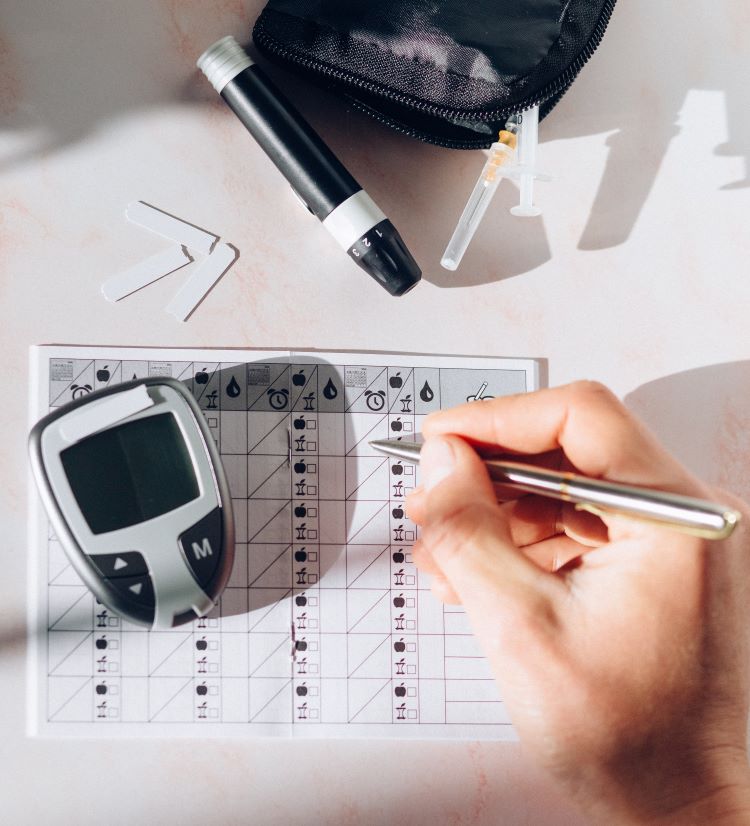Type 2 diabetes is generally defined as a progressive disease, that is, a disease that reliably gets worse over time. And in the majority of patients, that’s exactly how it happens.
The reason for this seemingly unavoidable decline is well-understood. The progression of Type 2 diabetes is defined by two related but distinct metabolic problems, each of which is both caused by and causes high glucose levels.
The first is insulin resistance, which describes the body’s own tendency to resist the hormone insulin. The second is the gradual loss of beta cell function, which reduces the amount of insulin that the body produces in the first place. The combination of these two declines leaves a patient less able to use insulin and less able to produce it, a vicious cycle if there ever was one.
These declines result in a pattern that should be unfortunately familiar to longtime diabetes patients. Worsening fasting glucose levels and hemoglobin A1c prompt a doctor to prescribe a new medication — maybe metformin or sulfonylurea — which results in immediate improvement. But the improvement is usually short-lived.
Over a period of months or years, glucose levels again begin to rise, and the doctor needs to increase the dosage. Eventually, the doctor prescribes a second medication, and perhaps a third, and, finally, the patient will begin to take most powerful glucose-lowering medication we have, insulin. At that point, the long-term complications of diabetes — vision problems, neuropathy, kidney disease, and so on — may seem inevitable.
The progression of Type 2 diabetes is not, however, inevitable. There is compelling evidence that Type 2 diabetes can be halted and even “reversed.”
Some pioneering doctors that have devised ways to stop the disease and dispel its symptoms, chiefly by prescribing a very low carbohydrate diet, regular exercise, and a mix of supplements and multivitamins. More extreme measures— such as bariatric surgery and near-starvation diets — have also been shown to reverse the progression of diabetes.
If you’re not ready for major lifestyle change, it’s still worth knowing what factors lead to the worsening of Type 2 diabetes. Type 2 diabetes progression isn’t inevitable, and it also isn’t random. We can benefit from the work of researchers who have studied which factors are most likely to lead to a worsening illness:
Age
Every study that we are aware of has isolated age as a significant factor in the rate at which diabetes patients experience declining glycemic control and health.
To put it simply: the younger a patient is when he or she is diagnosed, the more quickly his or her diabetes is likely to become more severe.
A recent Massachusetts study found that the odds of significant disease progression “decreased by 40% with every decade of age.” A recently published Chinese study that followed over 7,000 patients for an average of 8.8 years found that study participants that whose condition had worsened were both significantly younger and had been diagnosed at a younger age. Those that had been diagnosed under the age of 40 were nearly twice as likely to worsen during the examination period as those that had been diagnosed later in life.
Other studies have found that young age at diagnosis predicts risk of mortality and cardiovascular disease. The bottom line: if you have Type 2 diabetes, the younger you are, the more serious your condition is likely to become.
Weight Gain
It may be unsurprising that weight gained after diagnosis with type 2 diabetes makes the disease more likely to progress quickly.
The Massachusetts study followed about 700 patients that initially had not required medication to keep their A1c below 7.0%. A year later, about 200 of the patients had been put on their first diabetes drugs, and an analysis showed that weight gain was one of the most reliable predictors of which patients were among those 200. The researchers found that “each 1-lb increase in weight was associated with a 2% increased odds of progression.”
It comes as no suprise that controlling weight is one of the top ways to curb the effects of type 2 diabetes.
Glycemic Control
The higher a patient’s blood sugar, the faster the progression of type 2 diabetes. This is an unavoidable fact, given that the doctors use measures of glycemic control as way of determining when to intensify pharmacological treatment —and therefore of defining the meaning of diabetes progression.
High blood sugars today beget high blood sugars tomorrow due to the vicious cycle of insulin resistance and Beta cell loss. High blood sugars prompt the pancreatic beta cells to release more and more insulin, which both results in increasing insulin resistance (as the body becomes desensitized to large amounts of insulin) and in beta cell function loss, as the cells themselves seem to get “burned out” from the extra effort.
Nevertheless, because patients do have some control over their blood sugar, it means that they also have some control over the progression of their condition. Healthy diet and lifestyle decisions can naturally lower blood sugar, oftentimes even more effectively than medicines can.
Cholesterol
We all know that cholesterol can impact the risk factors for negative outcomes such as heart disease, outcomes that people with diabetes suffer an unacceptably high rate of. However, the interaction between cholesterol and the eventual loss of glycemic control in diabetes is not fully understood.
Nevertheless, we do have some data speaking to the question. The Chinese study mentioned above found that high LDL (“bad cholesterol”), low HDL (“good cholesterol”), and high triglycerides were all correlated with diabetes progression. A follow-up of the “non-progressors” in the initial study found that HDL and triglycerides remained significant, but not LDL. The Massachusetts study likewise found that “progressors” had lower HDL and higher triglycerides.
We don’t know whether these suboptimal cholesterol numbers are actually driving the progression of diabetes, or if they are a mere side effect of the other lifestyle choices or health factors that themselves tend to worsen the condition. Either way, patients with diabetes can be confident in the wisdom of following the typical advice for lowering triglycerides and increasing HDL naturally: avoid sugars and simple starches, exercise more (try these moves!), and eat more healthy fats, such as those found in nuts, avocado, and oily fish.
Smoking
As the CDC reports, “people with diabetes who smoke are more likely than nonsmokers to have trouble with insulin dosing and with controlling their disease … smoking makes your diabetes harder to control.” Anyone with diabetes that takes his or health seriously should stop smoking immediately.
Genetics
Probably the most powerful factor is an almost complete unknown: genetics. Doctors don’t know why, given the same diet and lifestyle, two outwardly similar patients may exhibit such starkly different rates of insulin sensitivity and beta cell function. Each of us has our own unknowable genetic propensity towards diabetes progression. It’s the luck of the draw.
Genetic factors can be guessed at if you know your family’s health history. Diabetes runs in families — for example, people with two diabetic parents have a lifetime risk of nearly 70% of developing the disease, compared to a mere 10% of the regular population — and every relative with diabetes makes it more likely that you are especially susceptible. Genetic factors also predict “rapid glycemic progression.”
Additionally, it is possible that non-white patients are more likely to experience rapid diabetes progression. Most American studies have found that non-white patients are likely to experience more negative outcomes and complications from Type 2 diabetes, but some analysis has suggested that those differences disappear “after adjusting for socio-demographic and other variables.”
What can you do to improve your type 2 diabetes condition?
Although there is no known cure for dibates, there is quite a bit you can do to lessen its many negative effects. In addition to a heatlhier diet, exercise, and staying clear from alcohol and smoking, you may also consider trying the following:
- Consume teas, herbs and other natural options
- Consider a program like Deep Sleep Diabetes Remedy, Reverse Diabetes, or Diabetes Smarts
- Choose to take a supplement to control blood sugar, such as Glucolo, Sensolin, or Glucose MD
As always, consult your physician before trying something new.




